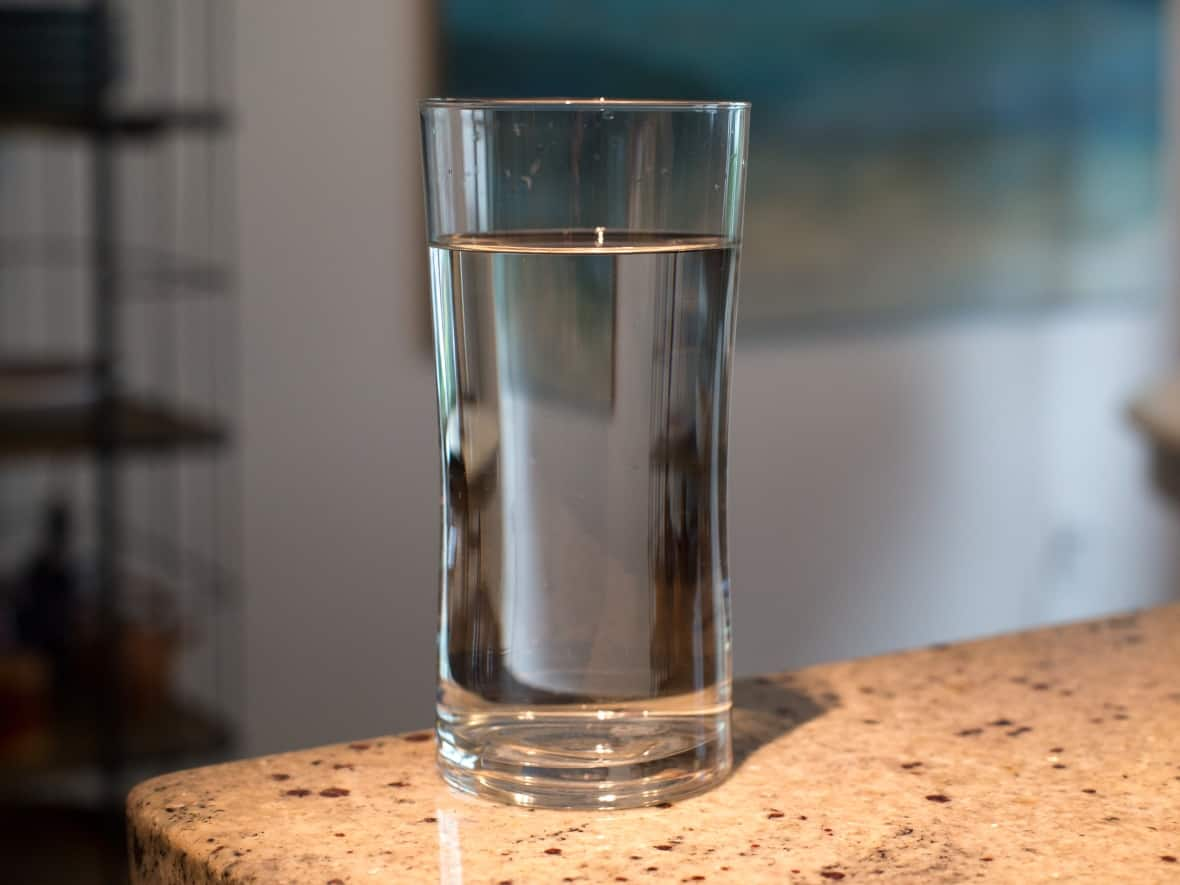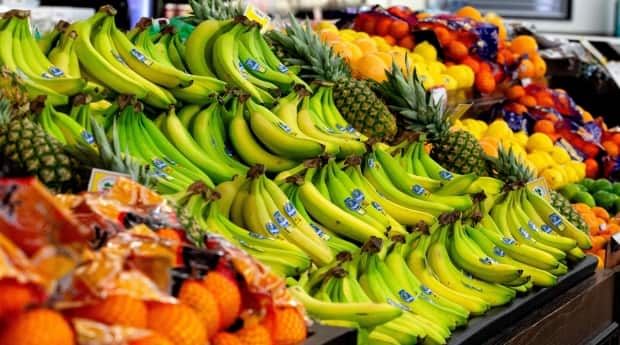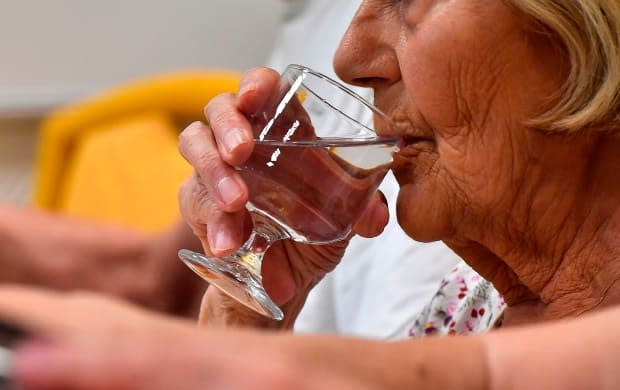Forget about the 8 glasses of water per day rule, according to these experts

You've probably heard that drinking eight glasses of water per day is key or that you should get more fluids when sick.
But just how much water does a person really need?
There are a lot of myths about hydration out there, but for most healthy adults, your body will tell you when it's time to drink up, says Dr. Jane Thornton, a sports medicine physician and former Olympic rower based in London, Ont.
"Essentially we should be drinking according to thirst. That doesn't always work, but it's good guidance for most of us," Thornton told Dr. Brian Goldman, host of CBC's The Dose.
She says factors like extreme heat, cold, age and duration of exercise all play into when and how much a person should drink.
Experts say there are some simple guidelines to follow to make sure you're properly hydrated, even in winter.
"[For] most of us, we don't need to overcomplicate things," said Stephen Cheung, a professor in Brock University's kinesiology department.
Do I need eight glasses of water per day?
The short answer is no.
Researchers said in a recently published study that "one size does not fit all" when it comes to the eight glasses per day water drinking guideline.
The researchers found that a person's water needs vary based on several factors like age, health status, sex, physical activity levels and local climate.

Most people don't need to drink two litres of water a day because they'll also get fluids from other sources like fruits and vegetables or coffee and tea.
So instead of drinking a one-size-fits-all amount of water every day, Thornton says most people should drink when they feel thirsty.
"There's no magic number," she says.
Cheung says one of the biggest myths around hydration is that you need to be constantly drinking.
"There are some exceptions, but for the large part your thirst is a wonderful tool," he says. "It is more than enough to really have you drinking sufficiently day-to-day."
Young children and infants are the exceptions — they often are not able to recognize the thirst sensation, Cheung says. Seniors, too, may struggle to recognize when they're thirsty as they may have a decreased sense of thirst.
How do I know if I'm dehydrated?
Signs of dehydration can be mild at first, with people often having trouble concentrating, a headache or irritability, Thornton says.
Darker-coloured urine, dizziness and fatigue are often more serious signs of dehydration. She says organ failure is one of the most extreme signs.

"But most of us will never get there. That's not what's going to happen on a daily basis," emphasizes Thornton.
And there are certain medications, like some antidepressants, that can increase a person's risk for dehydration, Thornton added.
Staying hydrated is important because fluids help regulate body temperature, keep joints lubricated, prevent infections and deliver nutrients to keep organs functioning, says Emily Campbell, a registered dietitian based in Toronto who helps people with kidney disease.
Should I only drink water?
Generally, water is the best fluid to hydrate the body, says Campbell.
"We can use things like lemon or lime to flavour our beverages, but on a day-to-day basis choosing those sugar-free beverages is important," she adds.
When working out, Thornton suggests sticking to water for the first hour. After that, she suggests replacing those electrolytes either through a sports drink or through food.
"You're essentially looking at electrolyte replacement [of] minerals such as sodium, calcium, potassium, chloride, phosphate and magnesium," says the Olympian.
"[Electrolytes] help balance the amount of water in the body and … they can also help remove waste from cells."

She says people can also refuel with food, listing bananas as a good source of potassium and watermelon as a source of potassium and magnesium.
Experts say those who are sick with a viral illness like a cold or the flu should also watch their water intake and may want to turn to a sports drink to get more carbohydrates in their diet when lacking an appetite.
Do I need to hydrate during exercise?
Cheung, who has researched thermal stress and its effects on the body, says the biggest myth around dehydration is that as soon as you sweat, you'll need to replace that water.
"The body can tolerate dehydration and can tolerate a decent amount," he says.
He points to marathoners or ultra-distance runners who lose some body weight during a race but still can perform at a high level.
"It's not the case that, 'Oh, I have to drink like every 15 minutes or as soon as I start sweating, I better slam back the fluids,'" he says.
He and Thornton agree that for the average person's one-hour workout, there is often no need to worry about huge losses of fluid.
"Most people will be able to regulate themselves and drink sufficiently when they come back from their exercise," Cheung says.
He adds that there are two main factors that will affect your rate of dehydration: environmental conditions like high temperatures and exercise intensity.
"Say you're running at the same speed on a cold day … in Edmonton. You're still going to be sweating, but you're not going to be sweating nearly as much as if you were here in southern Ontario in the middle of summer where it's very hot and humid," Cheung says.
"Your sweat rate — therefore your rate of dehydration — and then potentially the amount of fluids you need to drink both during exercise and after exercise will differ according to the environmental conditions."

If people want a better idea of how much water loss happens during a workout, Cheung and Thornton suggest weighing yourself before and after exercising.
"If you lose one kilo, then you will have to replace that with one litre of water," Thornton says, emphasizing that fluid loss will change based on environmental conditions and exercise duration.
What does the body do when it's over-hydrated?
Water intoxication or hyper-hydration can be fatal, but experts say it is rare.
Cheung says the human body is very good at "regulating your fluid balance," both when you're dehydrated and hyper-hydrated.
"It's very hard to hyper-hydrate, to be above your normal fluid balance, because your renal system — your kidneys — are just so good at regulating your fluid balance that you will just go to the bathroom and pee it out," he says, adding that there are no major health benefits to being hyper-hydrated.

 Yahoo Movies
Yahoo Movies 
